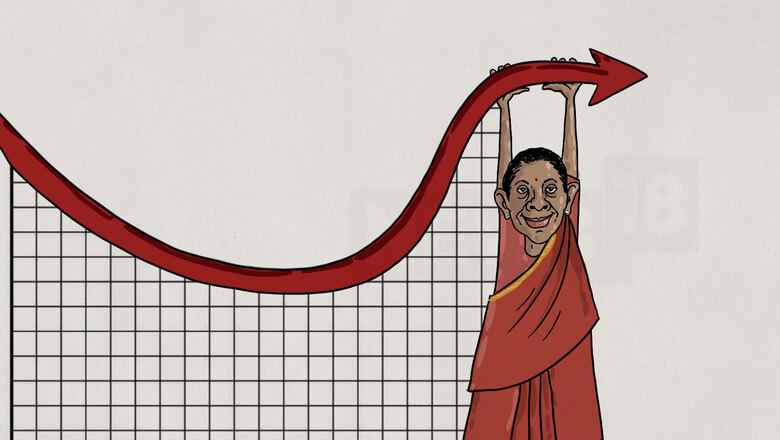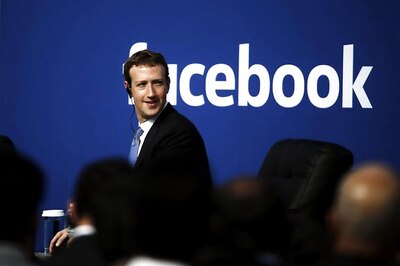
views
In a bid to take the economy out of the present morass, Finance Minister Nirmala Sitharaman is trying to address various economic issues, ranging from banking to corporate tax and the goods & services tax or GST. At a time when slowdown seems to be getting entrenched, some of the measures announced are likely to be fruitful.
The capital market saluted the major announcements on corporate tax rate cut on Friday. In the evening, the government went on to slash GST cuts in a number of sectors including automobiles and hospitality. Yet, despite the large number of measures taken in a span of three weeks, there is a lack the coherence that one would like to have in economic policy.
This also explains the piecemeal approach to the huge, looming crisis. This approach is the product and function of a flawed understanding of the economy as a whole: viewing it as a machine, whereas it is an organism.
If your car has a problem, it could be because of malfunctioning engine, leaking radiator, or something else. You get the engine or the radiator rectified, and the car becomes useable. Similarly, replacement of a faulty part can make your personal computer functional. For the automobile and the computer are machines.
The human body, however, is an organism. If somebody has a paunch, they can’t get rid of it just by concentrating upon it. A targeted approach like doing abdominal exercises—leg raises, crunches, planks, et al — will not work unless accompanied with a host of other workouts and a strict dietary regimen.
They can’t have poori in breakfast, paranthas and oily curries for lunch, samosas as evening snacks, and butter-chicken in dinner every day, along with heavy smoking, regular drinking, and a sedentary lifestyle — and hope to look like, say, Hritik Roshan or Shilpa Shetty. Wide-ranging changes in the entire life style would be imperative, for the paunch is organically related to the entire body.
The economy, too, is an organism, each of whose parts, elements, and governing principles affect each other. Hence the term body economic. The cure to any affliction has to be holistic, but that is not happening. There is a lot of activity, though.
The Finance Minister met representatives from trade and industry bodies in Chennai, the country’s auto hub, recently and said, “Wherever there is a need for government to come up with facilitation and support, we are willing to hear them and respond. I’m not of the view that it’s just the automobile sector but any other sector which needs consultations, we welcome them and respond to them.”
While interaction with industry is good, it is not good enough to revive the economy. The ongoing crisis is the result of rot in two sectors, finance and automobiles. While problems in finance, especially banking, are structural, those in the auto sector are largely created by those holding high offices. Public sector banks (PSBs) ought to be privatised, but the government has steered clear of such a liberalising move. Instead of selling PSBs to private parties, it has ordered the bigger PSBs to buy smaller ones, thus bringing down the number of state-run banks from 27 to 12; and now it is trying to peddle the mergers as a big reform.
The case of the auto sector is even sadder. Whereas in banking the government can be accused of the sins of omission — not carrying out reforms — in the case of the auto sector it has practically created a crisis. By way of irresponsible statements, policy flip-flops, and inadequate responsiveness.
A couple of years ago, Road Transport Minister Nitin Gadkari had said that he wanted to check the pace of car sales in India, especially those running on diesel. This is a promise he has kept.
“You may not like it, but I wish it from my heart that your growth should be less,” Gadkari had told the representatives of the car industry at a function in September 2017. He harangued them to shift from petrol and diesel vehicles to electric power trains and engines running on other fuel variants such as ethanol and biofuels.
“I am going to do it, whether you like it or not. I will bulldoze. Petrol diesel banaane walon kaa band-baajaa bajaanaa hai (I will make the lives of petrol/diesel vehicle makers miserable),” Gadkari said. He has been true to his word.
It looks like the powers-that-be thought that the automobiles are just about fat cat industrialists and fat-salaried executives whose greed and insouciance were costing the environment and the nation a great deal; that their concerns could be ignored without any consequences; that these folks were unnecessary accessories to the sector, which is a machine. The truth is that auto sector, like any other sector, is not a machine but an organic whole, an ecosystem that is part of a bigger ecosystem—the national economy. And it is huge, employing millions of people directly and indirectly—a few lakhs of whom have reportedly lost their jobs because of the crisis.
Since the economy is an organism, the body economic, it is not just the health of its various organs that matter but also its, so to speak, humours. And the humours are invariably statist in essence, what with increasing price controls (now it is spreading from healthcare to sanitary napkins and hand-washes), more emphasis on anti-profiteering measures, ever-proliferating compliances, and the growing incidence of inspector raj.
Those who matter need to realize that the body economic is an organism and, therefore, can’t be cured by deus ex machina. They can’t hurt the economy by their indiscretions, and expect to fix it whenever they want to. It can’t be the case of, in the words of an old Hindi film song, “tumhi ne dard diya hai, tumhi dawa dena...”
(The author is a senior journalist. Views expressed are personal.)



















Comments
0 comment